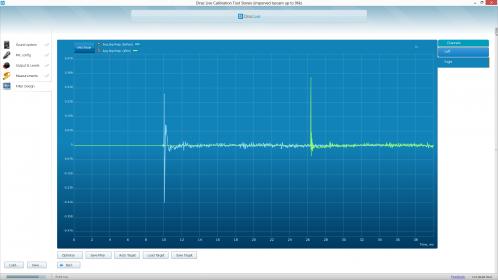To me, it all comes down to the source material. Some is recorded well, some not so well. If 70% of the recordings I play on my system sounded good to great (which is the rough estimate Hoffman claimed for his), I'd say that's pretty good.
I grew up in an analog audio world that eschewed user adjustable equalization or tone controls for home audio (I'm obviously not talking about studio gear)- the thinking being that, their very presence in the circuit degraded the sound. Perhaps today, equalizers are more transparent. (I never had occasion to use the Cello stuff at home, so maybe that was decent back in the day). And with digital and room correction and I suppose some 'presets' that are repeatable for given recordings, maybe you can increase the 'average' even more. I wonder though whether end user adjustments, no matter how refined or transparent, can transform a lousy recording into a good one. Or whether I'd even try, in an analog environment, to go to that trouble.
I spent a decent chunk of time today comparing different early pressings of Alice Cooper's Love it to Death. These are U.S. pressings that were done within a year or so of each other, and they sound markedly different. So, other than trying to find the best sounding pressing I can of a given record on vinyl (which often means early, harder to get in great condition pressings), i wind up concluding that it is the recording, i.e. a limitation of the source material, and there's only so much you can do. Some examples where I have multiple pressings of good records that aren't terribly well recorded:
Aqualung- it would take me some time to catalog all the different pressings I have. Some have strengths over others but none sound fabulous, including Hoffman's DCC mastering of that record. (It's more neutral than the MoFi, but that's a back-handed compliment).
LZI- it was a cheap production and sounds 'canned.' I love the record, so I've listened to a variety of different pressings- the best (which I don't have- it is hard to find) is a first press on Monarch, which we compared on my system to an east coast first press and to a UK first press (but not the 'turquoise' which is pretty unobtanium). The best I was able to come up with is a 74 Piros remaster on Monarch which is better than most of the other copies I've heard.
King Crimson "In the Court"- I have an early UK pink label, among other pressings- I've heard a UK first pressing on my system, it was good, but 20th Century Schizoid Man isn't that great even on that uber collectible pressing.
Tull- Benefit- here's a kicker- that record always sounded muted, wooly on the UK first, the US first and later pressings. It was recently remixed and pressed via a digital master and actually sounds better- here, the remix and the digital master did something to improve a murky, compressed sounding record.
Blind Faith- the original UK Polydor is better than the US release, but it isn't a great sounding recording.
Layla- I have several pressings- some tracks sound better than others on an early ATCO B'way pressing but it just isn't a great recording.
I could go on, but you get the idea. Some of these records are iconic, and I'll listen to them despite the fact that they are sonically bettered by records with far less musical merit.








